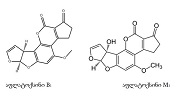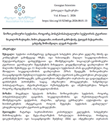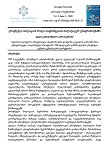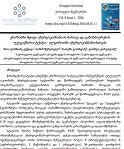Artificial Intelligence in the Energy Industry

Downloads
Today's world encompasses both emerging technological innovations and environmental responsibility across industries, the demand for energy systems is increasing, which provide maximum energy, minimum emissions and energy security. The demand for sustainable energy solutions has never been as urgent as it is today. To achieve these goals, the energy sector must undergo a rapid transformation - reducing emissions while providing reliable, scalable energy to support economic growth. The key to unlocking this potential is artificial intelligence, which offers unprecedented opportunities for energy production, management, and consumption. Artificial intelligence is a general-purpose transformative technology that can profoundly transform the global economy and the world's energy system, and offers tools to improve every link in the energy system to address socio-economic challenges. In the face of energy transition challenges, it can become more adaptive and proactive in addressing challenges. This value of digital technologies is increasingly recognized in the energy community, as evidenced by several key initiatives and policies. Among the proposed digital technologies, artificial intelligence is expected to play a significant role in the energy transformation, as it has already demonstrated relevant potential in a wide range of research and application areas. The paper presents strategic recommendations for future research, development, and policy development and provides information on the current state, capabilities, and trends of artificial intelligence technologies in the energy sector.
Downloads
Pantskhava E., Jishkariani M. "Decarbonization and its aspects in the energy sector", Proceedings of III International Scientific and Practical Conference Madrid, Spain 3-5 March 2025. Pp.117-123.
ფანცხავა ე., & ჯიშკარიანი მ. (2025). საერთაშორისო ურთიერთობები და ენერგეტიკის მდგრადი განვითარება . ქართველი მეცნიერები, 7(1), 408–416. https://doi.org/10.52340/gs.2025.07.01.37
ფანცხავა ე. (2025). ბლოკჩეინის, როგორც განვითარებადი, ინოვაციური ტექნოლოგიის დანერგვა მდგრადი ენერგეტიკული სისტემის წინსვლისთვის. ქართველი მეცნიერები, 7(1), 145–152. https://doi.org/10.52340/gs.2025.07.01.14
ფანცხავა ე., ჯიშკარიანი მ., & ჩოგოვაძე ბ. (2024). ბიოსაწვავის წარმოების აქტუალური სტრატეგიები, თერმული გამოყენების მიღწევები და შესაძლებლობები. ქართველი მეცნიერები, 6(3), 27–35. https://doi.org/10.52340/gs.2024.06.03.04
Elene Pantskhava, M.Jishkariani, Proceedings of VI International Scientific and Practical Conference, Vienna, Austria, 13-15 May 2024. ISBN 978-3-954754-01-4, pp143-150.
ფანცხავა ე, ჯიშკარიანი მ, ,,განახლებადი ენერგიის რესურსები უპირატესობები და სოციალურ-ეკონომიკური სარგებლიანობის ფართო სპექტრი“, მე-3 საერთაშორისო და სამეცნიერო პრაქტიკული კონფერენცია ,,სამეცნიერო თანამედროვე საზოგადოების მიღწევევბი“, 2024 წლის 10-12 ოქტომბერი. გამომცემლობა ლონდონი, დიდი ბრიტანეთი.გვ.160-166.
ფანცხავა ე., & ჯიშკარიანი მ. (2024). მწვანე წყალბადი - მდგრადი ენერგიის მომავლის გასაღები: (სოციალურ-ეკონომიკური სარგებელი). ქართველი მეცნიერები, 6(2), 345–354. https://doi.org/10.52340/gs.2024.06.02.36
Pantskhava E, Jishkariani M, ,,Renewable energies – the guarantor of the Georgian energy system sustainability”,Proceedings ofx international scientific and practical conference, June 13-15, Tokyo, Japan, 2024. pp.161-167.
ვეზირიშვილი-ნოზაძე ქ., ფანცხავა ე., ,,შავი ზღვის წყალქვეშა კაბელი - გზა საქართველოს ეკონომიკური გაჯანსარებისკენ“. მე-7 საერთაშორისო სამეცნიერო კონფერენცია ,,კულტურათაშორისი დიალოგები“, თელავი, საქართველო, 27-29 ოქტომბერი,2023 წ.
ვეზირიშვილი-ნოზაძე ქ, ფანცხავა,ე(2023, 2 – 4 აპრილი), „თანამედროვე მსოლფიო ახალი გამოწვევების წინაშე - ენერგეტიკის სექტორი“. საერთაშორისო მულტიდისციპლინარული სამეცნიერო კონფერენცია „თანამედროვე მსოფლიო ახალი გამოწვევების წინაშე“. კვიპროსი(ლარნაკა). 59-66.
ვეზირიშვილი-ნოზაძე ქ, ფანცხავა,ე. ,, საქართველოს განახლებადი რესურსებით იმპორტჩანაცვლების შესაძლებლობები და ამ მიმართულებით არსებული გამოწვევები”,საერთაშორისო სამეცნიერო კონფერენცია: ,,გლობალური გამოწვევები და ეკონომიკური განვითარების მოდელების ტრანსფორმაცია» , უაკ(UDC) 338.22+62 ბ-666, N3-4 2023 წელი.
ვეზირიშვილი-ნოზაძე ქ, ფანცხავა,ე. ,,რუსეთ - უკრაინის ომით განპირობებული ახალი გეოპოლიტიკური გარემოებები ევროკავშირისა და საქართველოსთვის“,V საერთაშორისო კონფერენცია ,,თანამედროვე განვითარების ეკონომიკური სამართლებრივი და სოციალური პრობლემები“,ქუთაისი, EISSN 2346-8203 2022წ.
M. Jishkariani, N. Dvalishvili, L. Kurakhchishvili. “Evaluation of Calorific of Municipal Solid Waste (MSW).” In: Ghosh S. (eds) Sustainable Waste Management: Policies and Case Studies. Springer, Singapore. 2020, pp.263-265. doi.org/10.1007/978-981-13-7071-7_23.
M. Jishkariani. “Criteria for Estimating Greenhouse Gas Emissions from Transport.” Georgian Technical University Proceedings #3(521). 2021, pp.59-68. doi.org/10.36073/1512-0996-2021-3-59-68.
M. Jishkariani, S.K.Ghosh, K. Didbaridze. “Energy and Economic Indicators Influencing Circular Economy in Georgia.” In: Ghosh, S.K., Ghosh, S.K. (eds) Circular Economy: Recent Trends in Global Perspective. Springer, Singapore. 2021, pp. 331-358. https://doi.org/10.1007/978-981-16-0913-8_11.
M. Jishkariani. “Electricity Tariffs in Georgia.” Warsaw, Poland: World Science 9(49), Vol.1. 2019, pp. 20-22. doi:10.31435/rsglobal_ws/30092019/6697.
Z. Hasan, H.R. Mohammad, & M. Jishkariani. “Machine Learning and Data Mining Methods for Cyber Security: A Survey”, Mesopotamian Journal of CyberSecurity, vol. 2022, pp. 47–56, Nov. 2022. https://doi.org/10.58496/MJCS/2022/006.
M.Pitskhelauri, & M. Jishkariani, M. “Energy Management Systems (Enms) Reforms of Georgia.” Journal of Energy Engineering and Thermodynamics (JEET) #3(01), 2023, pp. 38–45. doi.org/10.55529/jeet.31.38.45.
https://aibe.uq.edu.au/article/2023/03/economics-of-green-hydrogen-in-australia-part-1
Copyright (c) 2025 Georgian Scientists

This work is licensed under a Creative Commons Attribution-NonCommercial-NoDerivatives 4.0 International License.

























































































































































































































